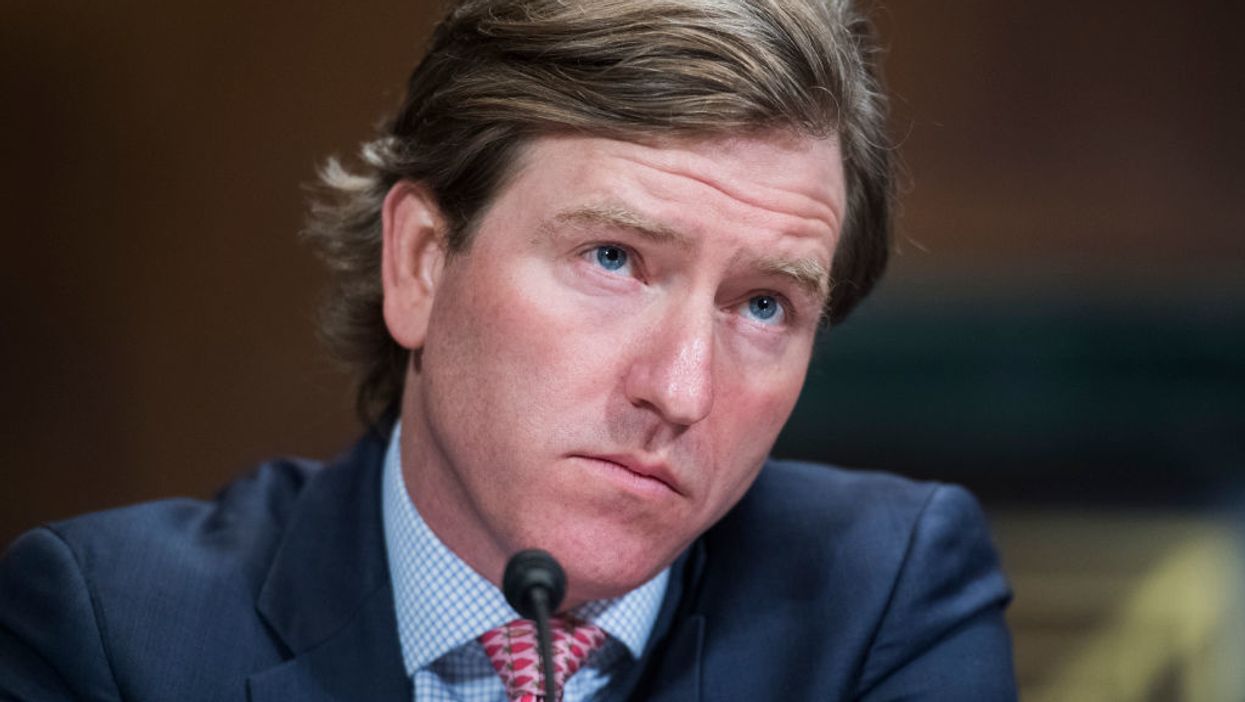President Trump can fire people for false reasons and for free, as he's most recently proved with the dismissal of top federal election security official Christopher Krebs, but now he's decided to put serious money where his election disinformation mouth has been.
On Wednesday the campaign committed $3 million from it's not-so-flush coffers to pay for recounts in the two biggest counties in Wisconsin, saying without evidence they saw the "worst irregularities" in a state where virtually complete returns have President-elect Joe Biden ahead by 21,000 votes. And midnight is the deadline for finishing a hand tally of nearly 5 million votes in Georgia, where the president has picked up about 1,000 votes and may be able to demand a state-funded recount because he's less than half a point behind.
Trump's persistence in challenging his defeat, in its 11th day since the returns became decisive, has not come remotely close to changing the result — because there are no facts backing up his allegations of significant voting fraud in every swing state he lost. But new polling shows Trump is having significant success in his unprecedented-for-a-president campaign to foment distrust in the essential activity of American democracy.
Only 73 percent agree that Biden fairly won the election, according to a Reuters/Ipsos opinion poll taken in the previous five days and released Wednesday, with 52 percent of Republicans convinced Trump "rightfully won" a second term. Asked why, 68 percent of GOP voters said they were concerned the election was "rigged." One in six Democrats and one-third of independents were similarly worried.
The poll also showed a worrisome increase in voter suspicions from four years ago. Only 55 percent of adults agree the Nov. 3 election was "legitimate and accurate," down 7 points from a similar poll after Trump defeated Hillary Clinton (and still asserted he'd been robbed of millions of votes). And the 28 percent who said they thought the results were "the result of illegal voting or election rigging" was up 12 points from 2016.
The results strongly suggest the drumbeat of assertions by Trump -- and the decisions of top Republicans across the country to not contest, let alone contradict, him -- have done as much to shape perceptions about the sanctity of electoral democracy as the non-partisan experts or even the people in his own administration charged with safeguarding the vote.
Trump on Tuesday night used Twitter to fire Krebs, who as director of the Department of Homeland Security's Cybersecurity and Infrastructure Security Agency had overseen the 2018 and 2020 elections. He had spent the past weeks refuting the president's election conspiracy theories, most prominently convening a panel of federal and state election officials who last week concludedthis election "was the most secure in American history."
"There were massive improprieties and fraud — including dead people voting, Poll Watchers not allowed into polling locations, 'glitches' in the voting machines which changed ... votes from Trump to Biden, late voting, and many more," Trump tweeted. "Therefore, effective immediately, Chris Krebs has been terminated."
Twitter flagged the tweet for promoting misinformation.
The dismissal came as the president saw one of his rare post-election successes turn to rejection. The elections board in Detroit, after initially refusing to certify the results from Michigan's biggest county, changed its mind and locked down Biden's total of 68 percent of the vote just in time, assuring he would carry the state's 16 electoral votes by about 3 points.
Biden's current lead is 364,000 votes in the pair of Wisconsin counties where Trump has decided to pay for a recount, which are centered on heavily Democratic Milwaukee and Madison. "We will not know the true results of the election until only the legal ballots cast are counted," the president;s attorneys said. In 2016, a statewide recount added a mere 131 votes to Trump's winning total.
Even if both the Wisconsin and Georgia results were to be miraculously reversed, that would still mean Trump had gained only 26 electoral votes — a dozen short of what he needs to win
On Tuesday, Trump lawyer Rudy Giuliani ran into significant skepticism at a federal courthouse in Pennsylvania, when he argued that results showing Biden secured its 20 electoral votes by more than 82,00 votes should essentially be tossed out altogether. ""At bottom, you're asking this court to invalidate more than 6.8 million votes, thereby disenfranchising every single voter in the commonwealth. Can you tell me how this result can possibly be justified?" Judge Matthew Brann asked.
The Trump campaign on Tuesday also filed a similarly aggressive lawsuit In Nevada, which Biden has carried by 2 points, asking a federal judge to either declare Trump the winner or to reject the state's election results.
On Capitol Hill, meanwhile, the nearly total GOP appeasement of Trump's behavior showed signs of cracking, if only passively. House Minority Leader Kevin McCarthy conceded the election results are "driving" toward a Biden win, and several GOP senators offered congratulations to their colleague Kamala Harris when she appeared in the chamber for the first time since being elected vice president.




















